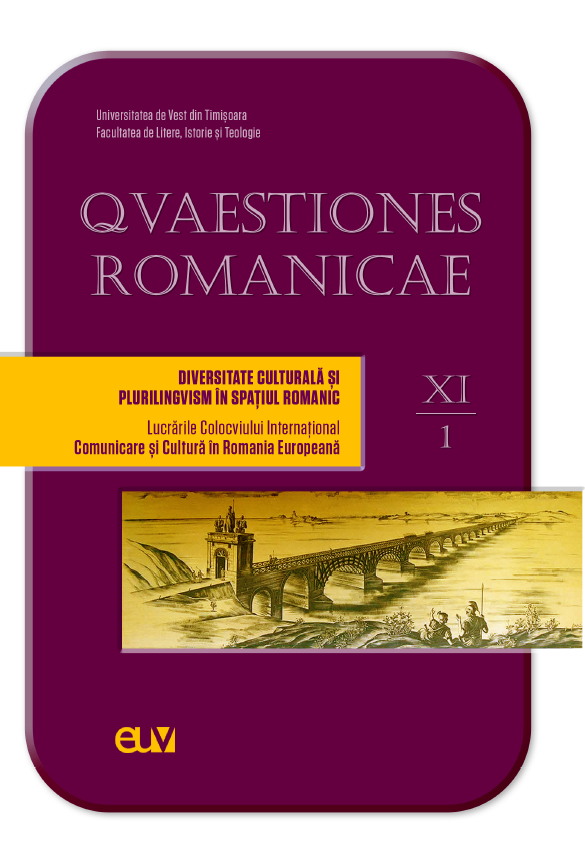„Ut veritas magis eluceret” în Imago Novae Hungariae
Abstract: (For the Truth to be revealed in Imago Novae Hungariae) A significant documentary source that appeared in the 18th century is the work written in Latin by the Jesuit priest, Samuel Timon, Imago Novae Hungariae representans regna, provincias, Banatus Et Comitatus Ditionis Hungaricae. The main purpose of Timon’s work is stated at the beginning: “If I would not have had in my hand some letters and some official documents of some of the most important Hungarian prelates and Kings and if I would not have red foreign history books, I would have restrained myself from this endeavor. This book aims to present the most important problems of Hungarian provinces”. Even if the approach of history is supposed to be objective it will inevitably record historian’ point of view and his personal perception, determined by events, thoughts and experiences that have in one way or another changed the expected or well-known facts. The present paper aims to investigate the text itself, more specifically, those paragraphs and textual passages that present subjectivity and reveal Timon's particular. These specific considerations can be traced back to Imago Novae Hungariae…. They reveal much about Timon's political and religious beliefs. In addition to the Jesuit priest's account of the events he presented, the work reveals his personal beliefs, they are also valuable testimonies about the society in which Timon lived.
Keywords: sources, identity, subjectivity, objectivity, clerical.
Rezumat: Lucrarea scrisă în limba latină în secolul al XVIII-lea, de către preotul iezuit, Samuel Timon, și intitulată Imago Novae Hungariae representans regna, provincias, Banatus Et Comitatus Ditionis Hungaricae este o importantă sursă documentară. Scopul principal al operei lui Timon este afirmat la început: „Iar dacă nu mi-ar fi căzut în mână unele scrisori şi acte oficiale (documente) ale celor mai de seamă prelaţi şi regi ai Ungariei şi nu aş fi citit istoriile străine, m-aş fi abţinut de la această intreprindere. Această cărţulie urmăreşte prezentarea celor mai importante probleme din provinciile ungare; cu greu ar putea cineva să le cuprindă pe fiecare în parte cu cea mai strictă grijă.” (trad. n.). Chiar dacă abordarea istoriei presupune obiectivitate, aceasta va înregistra inevitabil punctul de vedere și percepția personală a autorului acesteia, ambele determinate de evenimente, gânduri și experiențe care au schimbat într-un fel sau altul faptele relatate. Lucrarea de față își propune să investigheze textul în sine, mai precis, acele paragrafe și pasaje textuale care prezintă aspecte ale subiectivității auctoriale. Ele dezvăluie multe despre credințele politice și religioase ale lui Timon. Relatarea evenimentelor de către preotul iezuit este adesea însoțită de inserarea în text a propriilor convingeri și păreri, și de aceea reprezintă nu doar o simplă sursă documentară, ci și o mărturie personală valoroasă.
Cuvinte-cheie: surse, identitate, subiectivitate, obiectivitate, clerical.
